
Urdu poetry is a tradition of poetry and has many different forms. Today, it is an important part of the culture of India and Pakistan. According to Naseer Turabi there are five major poets of Urdu: Mir Taqi Mir (d.1810), Mirza Ghalib, Mir Anees (d.1874), Muhammad Iqbal and Josh Malihabadi (d.1982). The language of Urdu reached its pinnacle under the British Raj, and it received official status. All famous writers of Urdu language including Ghalib and Iqbal were given British scholarships. Following the Partition of India in 1947, it found major poets and scholars were divided along the nationalistic lines. However, Urdu poetry is cherished in both the nations. Both the Muslims and Hindus from across the border continue the tradition.

Faiz Ahmad Faiz was a Pakistani poet and author of Punjabi and Urdu literature. Faiz was one of the most celebrated, popular, and influential Urdu writers of his time, and his works and ideas remain widely influential today in Pakistan and beyond. Outside of literature, he has been described as "a man of wide experience", having worked as a teacher, military officer, journalist, trade unionist, and broadcaster.

Urdu literature comprises the literary works, written in the Urdu language. While, It tends to be dominated by poetry, especially the verse forms of the ghazal and nazm, it has expanded into other styles of writing, including that of the short story, or afsana. Urdu literature is popular mostly in Pakistan, where Urdu is the national language, and in India, where it is an Eighth Schedule language.

Syed Sibt-e-Asghar Naqvi, commonly known by his pen-name Jaun Elia, was a Pakistani poet, philosopher, biographer and scholar.
Pakistan’s tradition of poetry includes Urdu poetry, English poetry, Sindhi poetry, Pashto poetry, Punjabi poetry, Saraiki poetry, Baluchi poetry, and Kashmiri poetry. Sufi poetry has a strong tradition in Pakistan and the poetry of popular Sufi poets is often recited and sung.

Shaikh Ayaz SI born Mubarak Ali Shaikh was Sindhi language poet, prose writer and former Vice Chancellor of University of Sindh. He is counted as one of the prominent and great Sindhi poet of Pakistan in general and Sindh in particular. The author of more than 50 books on poetry, biographies, plays and short stories in both Sindhi and Urdu languages. His translations of Shah Jo Risalo, which was written by the 18th-century Sufi poet Shah Abdul Latif Bhittai, from Sindhi to Urdu language established him as an authority in his domain.
Hasan Abidi was a Pakistani journalist, writer, political activist and an Urdu language poet.
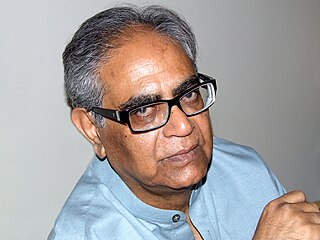
Iftikhar Hussain Arif, is an Urdu poet, scholar and littérateur from Pakistan. His style is romantic Urdu poetry. He has headed the Pakistan Academy of Letters and the National Language Authority. He has received the Hilal-e-Imtiaz, Sitara-e-Imtiaz and Presidential Pride of Performance awards, the highest literary awards given by the Government of Pakistan.
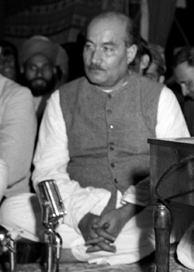
Josh Malihabadi popularly known as Shayar-e-Inqalab was a Pakistani poet and one of the finest Urdu poets of the era of British India. Known for his liberal values and challenging the established order, he wrote over 100,000 couplets and more than 1,000 rubaiyat in his lifetime. His wrote Yaadon ki Barat, his autobiography which is noted for its frank and candid style. The first Prime Minister of India, Jawaharlal Nehru held him in high esteem and frequently attended the mushaira at Lala Kishan Lal Kalra's United Coffee House where Josh performed.
The publishing industry in Pakistan is hampered both by a low literacy rate (65%).
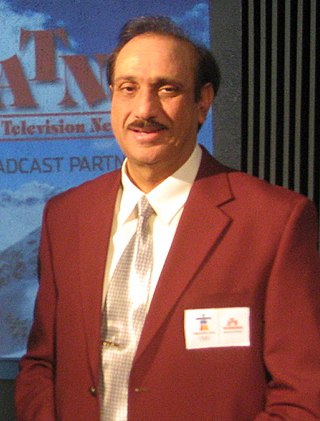
Ashfaq Hussain Zaidi, PP, is an Urdu Pakistani poet and an author of more than 10 books of poetry and literary criticism. He is considered at least by one commentator to be an expert on the life and works of Urdu poets Faiz Ahmed Faiz, Ahmad Faraz and also on Progressive Writers Movement.

Sindhi literature is the collection of oral and written literature in the Sindhi language in prose and poetry. The Sindhi language of the province of Sindh in Pakistan is considered one of the oldest languages of ancient India, and influenced the language of Indus Valley inhabitants. Sindhi literature has developed over a thousand years.
Ahmad Salim or Muhammad Salim Khawaja was a Pakistani writer, archivist and co-founder of the South Asian Resource and Research Centre, a private archive established in 2001.
Mirza Salaamat Ali Dabeer, (29 August 1803 – 6 March 1875) was an Urdu poet who excelled and perfected the art of Marsiya writing. He is considered the leading exponent of Marsiya Nigari or marsiya writing along with Mir Anees.
Muhammad Ali Siddiqui was a noted scholar of Urdu literature, educationist, literary critic and a newspaper columnist from Pakistan. He was also widely known by his pen name Ariel in Pakistan.
Tina Sani is a Pakistani female singer famous for her classical and semi-classical Urdu Ghazals.
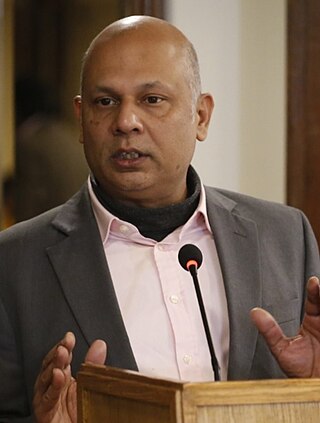
Harris Khalique is a Pakistani poet in Urdu, English and Punjabi and a civil society activist. Khalique has authored ten collections of poetry and two books of non-fiction. In March 2018, he received the Presidential Pride of Performance Award from the state of Pakistan as an acknowledgement of his contributions to poetry. In 2013, he was awarded the UBL Literary Excellence Award in the category of Urdu poetry for his collection Melay Mein. He is also a University of Iowa Honorary Fellow in Writing. During the 1980s and 1990s, some of his poems faced censorship in Pakistan. Anthologised and published internationally, he is translated into several languages and his poetry is composed to music and dance.
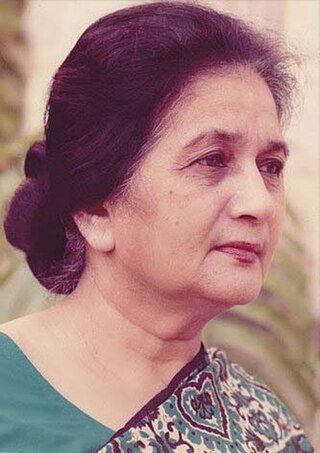
Ada Jafarey, often spelled Ada Jafri, was a Pakistani poet who is regarded as the first major female Urdu poet to be published and has been called "The First Lady of Urdu Poetry". She was also an author and was considered a prominent figure in contemporary Urdu literature. She received awards from the Government of Pakistan, the Pakistan Writers' Guild, and literary societies of North America and Europe in recognition of her efforts.
Jocelyn Ortt-Saeed was an Australian-Pakistani poet, philosopher and social worker. She is listed in the poetry's World Who's Who and was the subject of the documentary film Punjabi Love Story.
Akhtar Usman is a Pakistani poet, critic, columnist and writer. He is known for his poems on non-traditional subjects, he has written extensively in multiple languages. His works span across various genres such as Ghazal, Nazm, and poem. His published books of poetry, including Ashk Aabad, Charagh Zaar, Kuchh Bacha Laye Hain, Sitara Saz, and Tarash.










